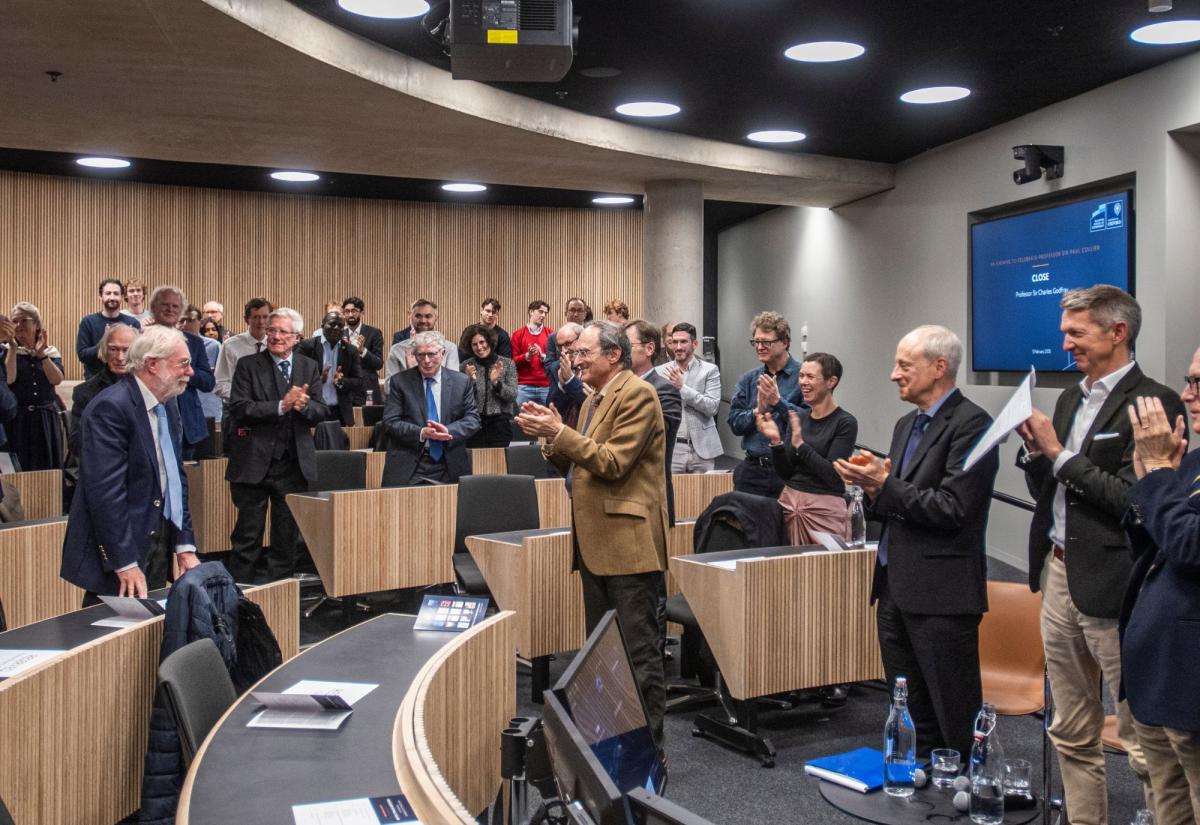The Global Economic Governance Programme and the Blavatnik School of Government were delighted to welcome Nobel Prize winner Sir John Sulston for a special lecture on 11 February. Sir John recently chaired a Royal Society Working Group on pressing global challenges in the 21st century. He discussed the Group's findings in their report 'People and the Planet'.
The 21st century is a critical period for the relationship between humans and the planet. The global population reached 7 billion during 2011 and the United Nations projections indicate that it will reach between 8 and 11 billion by 2050. Human impact on the Earth raises serious concerns; the report addresses three principal challenges.
First, the world’s 1.3 billion poorest people need to be raised out of extreme poverty. This is critical to reducing global inequality, and to ensuring the wellbeing of all people. It will require increased per capita consumption for this group, allowing improved nutrition and healthcare, and reduction in family size in countries with high fertility rates.
Second, in the most developed and the emerging economies unsustainable consumption must be urgently reduced. This will entail scaling back or radical transformation of damaging material consumption and emissions and the adoption of sustainable technologies, and is critical to ensuring a sustainable future for all.
Third, global population growth needs to be slowed and stabilised, but this should by no means be coercive. A large unmet need for contraception remains in both developing and developed countries.
There are opportunities to reframe the relationship between people and the planet, including the discussions at the UN General Assembly revisiting the International Conference on Population and Development (ICPD+20) scheduled for 2014/2015 and the review of the Millennium Development Goals in 2015. Successfully reframing this relationship will open up a prosperous and flourishing future, for present and future generations.
For more on this event, and to download a copy of the Royal Society Report, visit the GEG website.
Sir John Sulston was awarded the Nobel Prize in Physiology or Medicine in 2002 for his work on the biology of the nematode (worm) Caenorhabditis elegans, sharing the Prize with Sydney Brenner and Bob Horvitz. He was the Founder Director of the Wellcome Sanger Trust from 1992 to 2000, and he is currently Chair of the Institute for Science, Ethics and Innovation at the University of Manchester.



